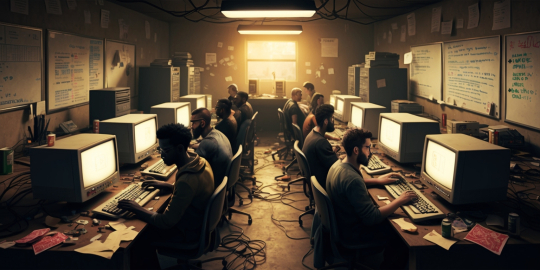
This article explores a period when employees at a well-known gaming company endured long and intense work sessions that were common during the development cycle, especially when deadlines approached. It examines how these demanding periods have influenced both the work environment and industry attitudes over time.
In earlier years, working conditions were extremely challenging. The concept of prolonged and compulsory overtime at the end of game development became notorious in the industry. Today, some studios proudly claim they avoid such extended hours, but back then the situation was much harsher.
Three seasoned veterans from the company, who contributed to several popular franchises, recalled their experiences from as late as 2012. Their recollections underscored how the workspace often transformed into a secondary residence. In previous decades, every new office was equipped with amenities like rest areas and shower facilities to support employees who stayed overnight, a practice that persisted well into the 2000s.
The following points summarize the situation during those times:
- Employees often spent nights at the office due to mandatory extended hours.
- Facilities such as rest areas and showers were standard in offices.
- The environment, although taxing, sometimes felt more like a communal gathering rather than a traditional company culture.
Even though the prolonged work sessions brought about significant challenges, including effects on personal health and relationships, there was also a silver lining. One of the veterans noted that these long hours served as an avenue for communication and occasionally sparked new ideas, creating a sense of camaraderie similar to that of a close-knit club.
This history raises an important question for consumers: Does your awareness of these tough working practices influence your decisions when purchasing games?


